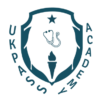Reflection is a powerful tool in medical education, allowing practitioners to learn from their experiences, identify areas for improvement, and enhance their clinical skills. In the context of preparing for the PLAB 2 exam, reflection plays a crucial role in guiding candidates towards success. This blog explores the significance of reflection in PLAB 2 course and provides strategies for integrating reflective practice into study routines.
Understanding PLAB 2 Practice
The PLAB 2 exam is a practical assessment that evaluates clinical skills and knowledge through simulated patient encounters. To excel in this exam, candidates must engage in rigorous practice to hone their clinical reasoning, communication skills, and patient management abilities. However, mere repetition of tasks is not enough; deliberate reflection on practice sessions is essential for meaningful learning and improvement.
The Concept of Reflection
Reflection involves systematically analyzing one’s experiences, thoughts, and actions to gain insights and enhance professional practice. In the context of PLAB 2 preparation, reflection allows candidates to critically evaluate their performance, identify strengths and weaknesses, and develop strategies for improvement. By engaging in reflective practice, candidates can transform routine practice sessions into opportunities for growth and development.
The Role of Reflection in PLAB 2 Practice
Reflective practice plays multiple roles in PLAB 2 preparation:
- Self-Assessment: Reflection enables candidates to assess their performance objectively, identifying areas where they excel and areas where they need to improve. By recognizing their strengths and weaknesses, candidates can focus their efforts on areas that require further development.
- Critical Analysis: Through reflection, candidates can critically analyze their performance in mock exams and practice sessions. They can identify patterns of errors, misconceptions, or gaps in knowledge, allowing them to address these issues before the actual exam.
- Identification of Learning Needs: Reflection helps candidates pinpoint their learning needs and areas for improvement. By reflecting on their experiences, candidates can identify specific skills or knowledge areas that require further attention, guiding their study efforts effectively.
Strategies for Effective Reflection in PLAB 2 Practice
To incorporate reflection into PLAB 2 practice effectively, candidates can adopt the following strategies:
- Establish a Structured Reflective Process: Set aside dedicated time for reflection after each practice session. Use reflective tools and techniques such as journaling, self-assessment forms, or structured reflection prompts to guide the process.
- Guided Reflection with Mentors or Peers: Seek feedback from instructors, mentors, or study partners to gain different perspectives on your performance. Engage in group reflection sessions or peer feedback exchanges to benefit from collective insights and experiences.
- Goal Setting and Action Planning: Based on your reflective insights, set SMART goals for improvement and develop action plans to address identified learning needs. Break down larger goals into smaller, manageable tasks, and track your progress over time.
Incorporating Reflection into PLAB 2 Study Plan
Integrating reflective practice into your PLAB 2 study routine is essential for continuous improvement. Here’s how you can incorporate reflection into your study plan:
- Daily Reflection: Allocate time at the end of each study day to reflect on your learning experiences. Review your performance in practice sessions, identify areas for improvement, and set goals for the next day.
- Balanced Approach: Balance reflection with active learning strategies such as practice questions, case reviews, or interactive learning activities. Use reflection to complement your study efforts and enhance your understanding of key concepts.
- Monitor and Adjust: Continuously monitor your progress and adjust your study plan based on reflective insights. If certain study methods or techniques are not yielding the desired results, adapt your approach accordingly and try alternative strategies.
Challenges and Considerations
While reflection is a valuable tool for learning and improvement, it may pose certain challenges, such as time constraints, difficulty in self-assessment, or resistance to feedback. However, by recognizing these challenges and actively working to overcome them, candidates can harness the full potential of reflective practice in PLAB 2 preparation.
Conclusion
Reflection is a cornerstone of effective learning and improvement in medical education. In the context of PLAB 2 preparation, reflective practice empowers candidates to assess their performance, identify learning needs, and develop strategies for success. By incorporating reflection into their study routines and embracing a structured approach to self-assessment and feedback, candidates can optimize their preparation efforts and maximize their chances of success in the PLAB 2 exam.

